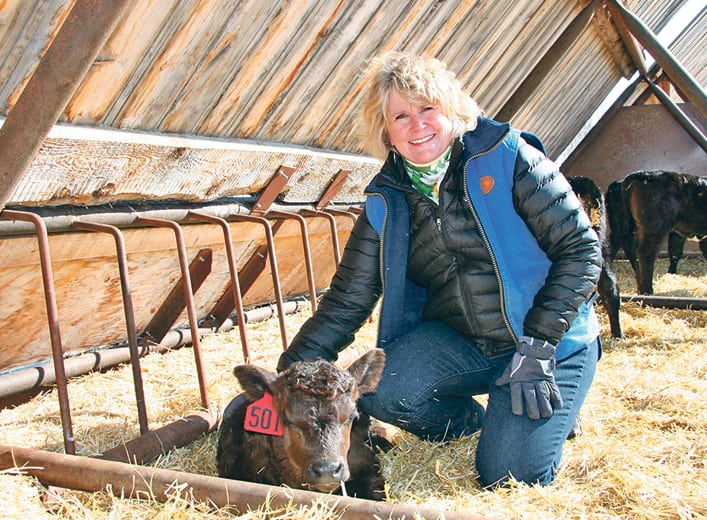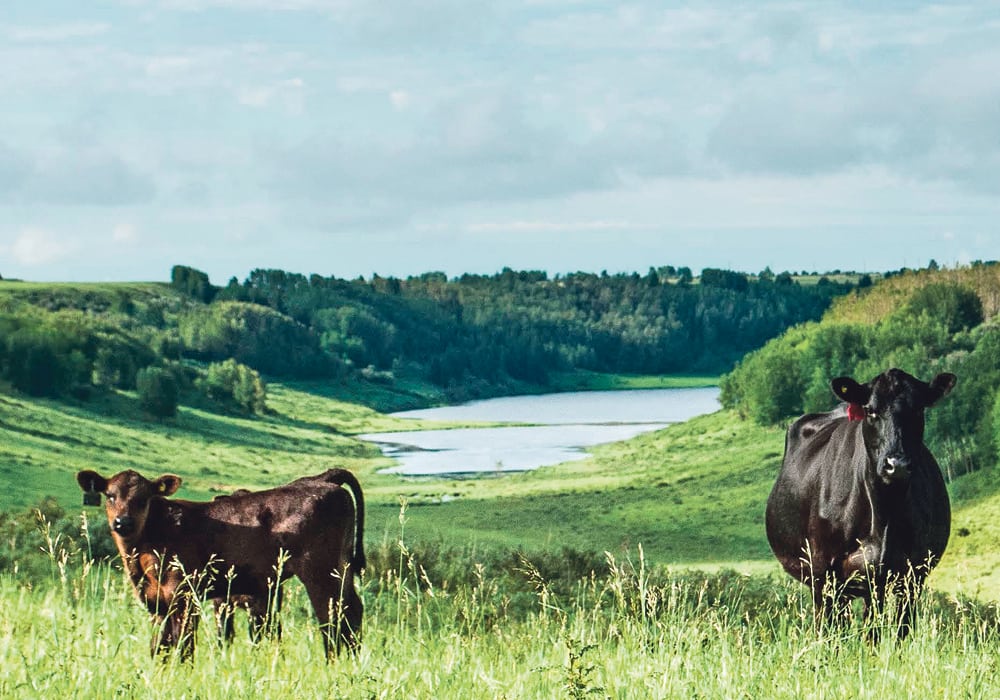The $44 million gift from W.A. Ranches is intended to be used for animal health and welfare research and public outreach
A donation of a 19,000-acre ranch to the University of Calgary faculty of veterinary medicine is the largest gift of its kind to any Canadian university.
W.A. Ranches near Cochrane, Alta., is worth an estimated $44 million and was donated by Calgary entrepreneurs Jack Anderson and his daughter Wynne Chisholm. The plan is to build it into a beef cattle centre of excellence using the grasslands and ranch herd of about 1,000 commercial Angus cows for integrated research and education.
“We want the University of Calgary to create a leading world centre of excellence in beef cattle research as part of an ongoing working cattle ranch,” said Chisholm, who also graduated from Calgary.
Read Also

Beef cattle more prone to trace mineral deficiencies
The trace mineral status of our cows and calves is a significant challenge for western Canadian producers and veterinarians.
The transfer of possession of W.A. Ranches to the University of Calgary will occur this November. Earlier, the family donated $5 million to fund an animal welfare research chair in 2014. The animal welfare chair is held by Dr. Ed Pajor, who will be the director of the ranch.
W.A. Ranches started from scratch in 2005. It has five employees and calves from the ranch are sold as feeders and replacement heifers.
Anderson, 91, has been involved in the cattle business throughout his adult life and owned purebred and commercial herds in central Alberta.
The family decided to bequeath the ranch as part of a succession plan because siblings and children were not interested in taking over.
“Succession planning for a family business is a tough emotional process. It is even tougher when your business is a ranch and you have staff that work with you on the property and when you raise animals, not widgets,” Chisholm said.

The university already has research plans for the site, said Dr. Baljit Singh, dean of the faculty of veterinary medicine.
Research into the one health concept, as well as education and public outreach are among the plans for the site.
“We will be able to look at some of the very complex problems with interface between animals and humans and how they survive in the environment,” he said.
The University of Calgary is the only Canadian institution where the faculties of medicine and veterinary medicine, and public health are physically co-located and co-operate in various projects.
“The ranch will provide a platform for collaboration with other faculties, industry and the public sector to foster interdisciplinary learning and research, and the development of an international centre of excellence in beef cattle health,” said Singh.
















